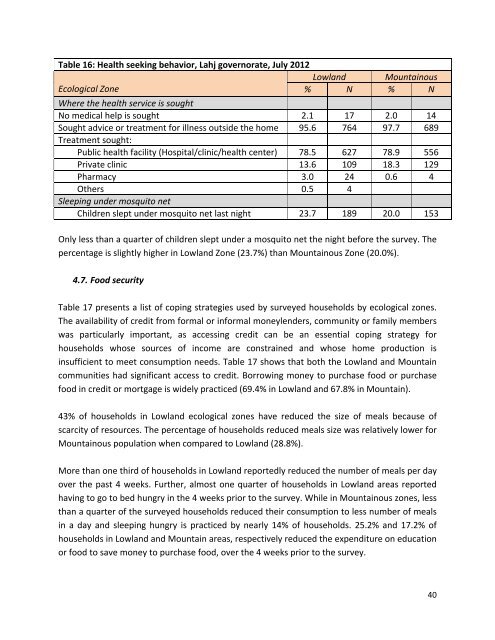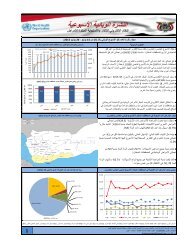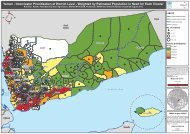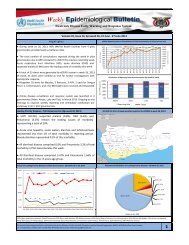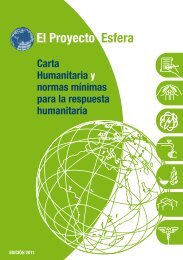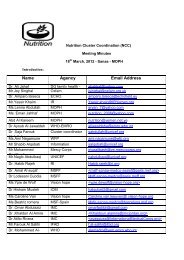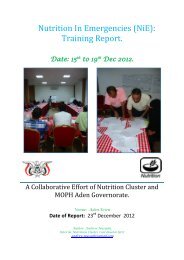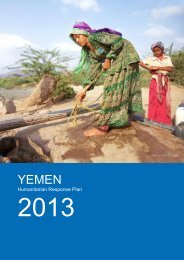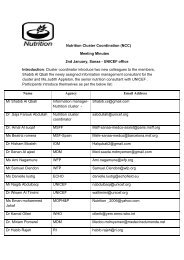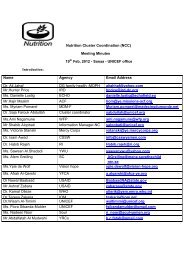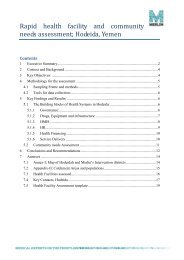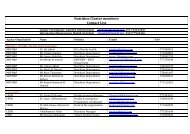Download - Yemen Humanitarian Response | YEMEN
Download - Yemen Humanitarian Response | YEMEN
Download - Yemen Humanitarian Response | YEMEN
Create successful ePaper yourself
Turn your PDF publications into a flip-book with our unique Google optimized e-Paper software.
Table 16: Health seeking behavior, Lahj governorate, July 2012Lowland MountainousEcological Zone% N % NWhere the health service is soughtNo medical help is sought 2.1 17 2.0 14Sought advice or treatment for illness outside the home 95.6 764 97.7 689Treatment sought:Public health facility (Hospital/clinic/health center) 78.5 627 78.9 556Private clinic 13.6 109 18.3 129Pharmacy 3.0 24 0.6 4Others 0.5 4Sleeping under mosquito netChildren slept under mosquito net last night 23.7 189 20.0 153Only less than a quarter of children slept under a mosquito net the night before the survey. Thepercentage is slightly higher in Lowland Zone (23.7%) than Mountainous Zone (20.0%).4.7. Food securityTable 17 presents a list of coping strategies used by surveyed households by ecological zones.The availability of credit from formal or informal moneylenders, community or family memberswas particularly important, as accessing credit can be an essential coping strategy forhouseholds whose sources of income are constrained and whose home production isinsufficient to meet consumption needs. Table 17 shows that both the Lowland and Mountaincommunities had significant access to credit. Borrowing money to purchase food or purchasefood in credit or mortgage is widely practiced (69.4% in Lowland and 67.8% in Mountain).43% of households in Lowland ecological zones have reduced the size of meals because ofscarcity of resources. The percentage of households reduced meals size was relatively lower forMountainous population when compared to Lowland (28.8%).More than one third of households in Lowland reportedly reduced the number of meals per dayover the past 4 weeks. Further, almost one quarter of households in Lowland areas reportedhaving to go to bed hungry in the 4 weeks prior to the survey. While in Mountainous zones, lessthan a quarter of the surveyed households reduced their consumption to less number of mealsin a day and sleeping hungry is practiced by nearly 14% of households. 25.2% and 17.2% ofhouseholds in Lowland and Mountain areas, respectively reduced the expenditure on educationor food to save money to purchase food, over the 4 weeks prior to the survey.40


